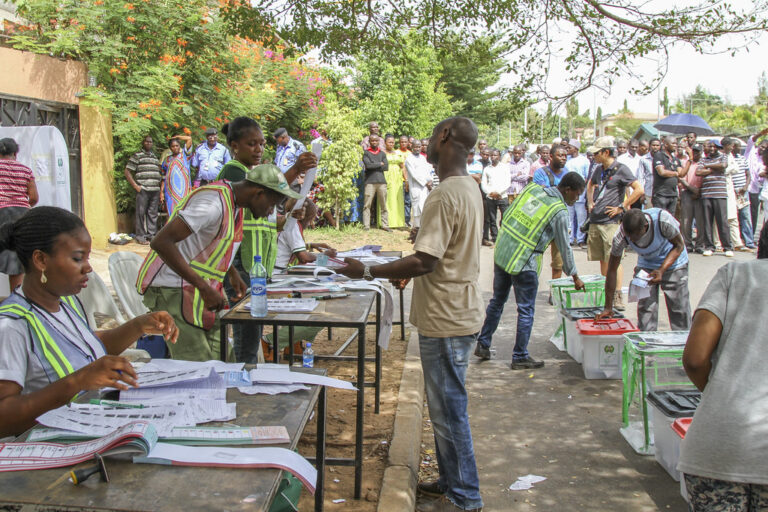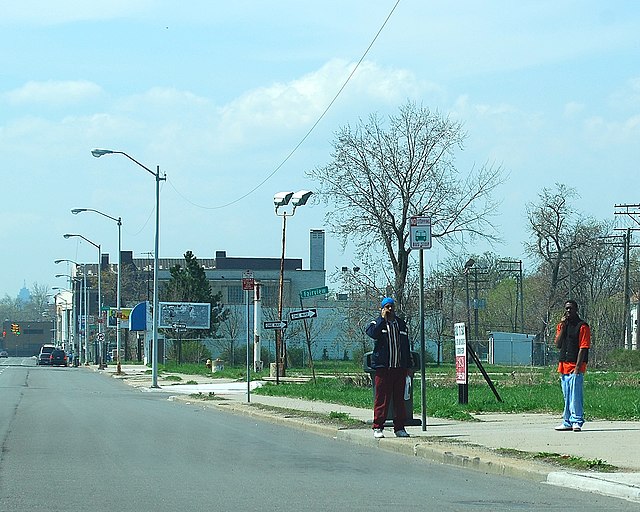If you’re planning to japa anytime soon, stop and read this first. Because while you’re dreaming of a fresh start, Americans are doing the opposite—fleeing cities you’re hoping to arrive in. From Detroit to St. Louis, Baltimore to Oakland, the headlines aren’t pretty. These are not just struggling neighborhoods—they’re entire cities in decline. And yes, this is what you might walk straight into if all you’re chasing are glossy Instagram posts and Netflix dreams.
You’ve probably seen it all before: stunning skyline shots of New York, the glimmering Golden Gate Bridge in San Francisco, maybe even the vibrant chaos of downtown Chicago. It all looks so promising from Lagos or Abuja—especially when you’re fed up with epileptic power, a choking economy, and a system that doesn’t work unless you know someone who knows someone.
But behind the filters and hype is a brutal truth: many parts of the United States are crumbling. And not metaphorically. We’re talking crime, unemployment, homelessness, abandoned properties, and urban decay that’s making locals pack up and leave for good.
So, if you’re thinking about relocating to the U.S., don’t just pack your bags—pack some street smarts too. Because without solid research, you might be swapping one broken system for another—one that comes with colder winters, higher bills, and far fewer people who look like you.
“Thinking of japa? Read this first. Don’t let the American Dream turn into a personal nightmare.”
The Rise and Fall of America’s Industrial Giants
Detroit. St. Louis. Gary, Indiana.
Once, these cities were the backbone of America’s economy. Detroit was the heart of the U.S. automotive industry. Gary thrived off steel. St. Louis made its name through shipping, lumber, and manufacturing. But when those industries collapsed—due to automation, globalization, and political negligence—so did the cities that depended on them.
People with means relocated. Those left behind watched their neighborhoods crumble.
That’s what happens to any city when the economy tanks. People with means relocate. Regardless of race.
Today, Detroit’s population has fallen from nearly 1.85 million in the 1950s to under 700,000. Entire blocks have been abandoned. Gary is now infamous for its eerie emptiness and high crime. St. Louis has lost hundreds of thousands of residents and much of its tax base, making it one of the fastest-shrinking major cities in the U.S.
Personal Glimpse from the Ground
Last time I was in St. Louis for work, it honestly looked like a war zone. Piles of garbage lined the streets. Every building had its windows shattered. It wasn’t just the absence of people—it was the presence of despair. Whores, drugs, bums, and thugs… it was everywhere.
Baltimore wasn’t much better. My friend and I just kept exchanging glances. Neither of us could utter a word. It was the kind of silence that screams.
Sometimes the real America is nothing like the one you imagined.
The List Is Long—and Growing
It’s not just a few unlucky cities.
Oakland, Baltimore, Buffalo, Newark, Memphis, Birmingham, Kansas City—the list of American cities experiencing population decline is long and ever-growing.
Oakland has seen back-to-back years of population loss. East St. Louis, once an industrial hub, now battles blight and poverty. Newark is still recovering from decades of white flight, poor governance, and systemic neglect.
Even parts of Kansas City are losing people as residents flee urban decay for the suburbs.
What do they all have in common?
Shrinking job markets, deteriorating infrastructure, rising crime, and eroding public services.
These aren’t just headlines. They’re living conditions. They’re realities.
The Nigerian Parallel That No One Wants to Talk About
Now here’s where the mirror gets uncomfortable.
While Americans are fleeing broken cities, Nigerians are being priced out of cities that were never built to accommodate them in the first place. Lagos and Abuja—our so-called “economic powerhouses”—have become monuments to greed and ill-gotten wealth.
The real estate market is nothing short of a scam. Properties are outrageously overpriced, quoted in dollars, fueled by shady deals and corrupt money laundering.
The middle class? They’ve been priced out. Completely.
You pay millions to live in a shoebox apartment with no drainage, unreliable electricity, and roads that turn to swamps when it rains. In Abuja, whole neighborhoods are built overnight with no plan for schools, hospitals, or even running water.
Meanwhile, those who actually work for a living—nurses, teachers, civil servants—can barely afford a decent home.
And here’s the shocker:
Even the most run-down cities in America—yes, even Gary, Indiana—still offer better infrastructure than Lagos or Abuja.
Let that sink in.
The Bitter Irony of the Japa Dream
So many Nigerians dream of escape—anywhere that promises a shot at stability, dignity, and opportunity. But japa without information is just another way to walk into struggle.
You could leave Lagos only to end up in a city like St. Louis, where your neighbors are packing up, your local grocery store is shuttered, and police respond in hours—if at all. You could trade naira stress for dollar disillusionment.
This isn’t to kill your dream. It’s to help you dream smarter.
Do your research. Ask hard questions. Don’t fall for the hype. Every American city is not equal—and neither is every opportunity.
A Wake-Up Call for Nigeria
Nigeria must learn from these failed cities. The overdependence on oil, the neglect of agriculture, the underinvestment in human capital—these are the same patterns that brought Detroit and Gary to their knees.
If we continue building cities where only the rich can live and the poor can suffer in silence, we’ll be next. Lagos is already cracking at the seams. Abuja is on a similar path.
And let’s not pretend the deepening Yoruba hatred of Igbos isn’t part of this unraveling. Ethnic tensions, fueled by tribalism and politics, only add fuel to a fire we’re pretending doesn’t exist.
It’s time for serious policy overhauls, inclusive urban planning, and a war on corruption that’s more than lip service. Otherwise, we won’t just be japa’ing to failing cities—we’ll be building our own.
If Nigeria collapses, it won’t be because it wasn’t warned. It’ll be because it refused to listen.
Final Word: Don’t Just Japa—Think Strategically
So, you’re planning to japa. You’ve had enough of Nigeria’s chaos, corruption, and criminally overpriced real estate. You’re chasing hope. A better life. Who can blame you?
But here’s the uncomfortable truth: not all that glitters abroad is gold—and certainly not in some of the U.S. cities people are fleeing faster than you can say “relocation.” You might be escaping Lagos traffic only to land in Baltimore gunfire. Or leaving the madness of Abuja’s housing market for an abandoned block in East St. Louis.
Let’s be honest—some of these American cities look like war zones, with boarded-up windows, crumbling infrastructure, and streets owned by crime. And yes, the government might work better, but poverty and neglect don’t care what flag is flying.
Before you grab your passport, do your homework. Don’t get dazzled by Instagram reels and TikTok relocation videos. Take a real look at what life is like in the city you’re heading to. Look beyond the skyline. Study the crime rates. Check the job market. Research cost of living. Find out what locals are fleeing from.
And while you’re at it, grab The Gift of Fear by Gavin de Becker—a brutally honest, must-read survival manual for urban life in America. It’s not just theory; it could literally keep you safe when your street smarts are all you have.
👉 Buy The Gift of Fear on Amazon
Bottom line?
Don’t just pack your bags. Pack your wits. Moving without research is not relocation—it’s roulette. And you don’t want to be the one who traded one broken system for another, just dressed in better PR.
Follow us on Facebook and Instagram for the latest updates and exclusive content!








